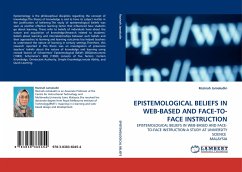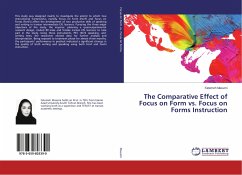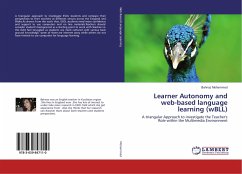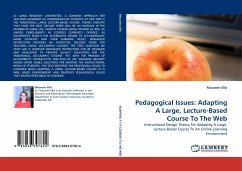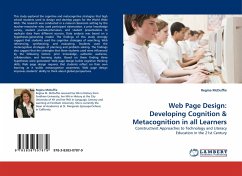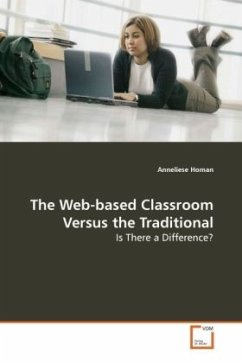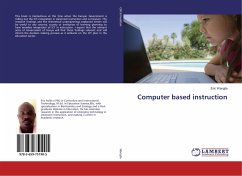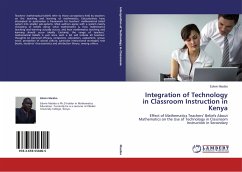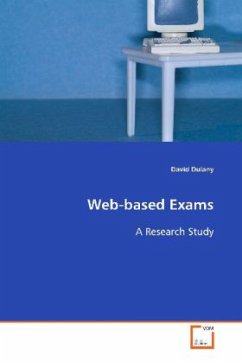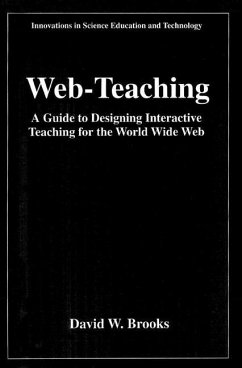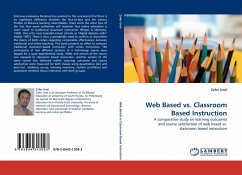
Web Based vs. Classroom Based Instruction
A comparative study on learning outcomes and course satisfaction of web based vs. classroom based instruction
Versandkostenfrei!
Versandfertig in 6-10 Tagen
39,99 €
inkl. MwSt.

PAYBACK Punkte
20 °P sammeln!
Extensive evaluative literature has pointed to the conclusion that there is no significant difference between the face-to-face and the various models of distance learning. Nevertheless, there exists the other face of the fact that some authorities still maintain that online education is never equal to traditional classroom instruction (Phipps & Merisotis, 1999). One critic even branded virtual schools as digital diploma mills (Noble 1997). There is thus a perceptible need to confirm or disconfirm the claims of both camps regarding comparable effectiveness between traditional and online teachin...
Extensive evaluative literature has pointed to the conclusion that there is no significant difference between the face-to-face and the various models of distance learning. Nevertheless, there exists the other face of the fact that some authorities still maintain that online education is never equal to traditional classroom instruction (Phipps & Merisotis, 1999). One critic even branded virtual schools as digital diploma mills (Noble 1997). There is thus a perceptible need to confirm or disconfirm the claims of both camps regarding comparable effectiveness between traditional and online teaching. This book presents an effort to compare traditional classroom-based instruction with online instruction. The participants of two different sections of a technology course were tapped for a quasi-experimental study. While one section of the course was exposed to classroom based instruction, another section of the same course was delivered online. Learning outcomes and course satisfaction were measured for both classes using quantitative (pre and post-test, readiness survey, learning inventory, student portfolios) and qualitative methods (focus interviews with both groups).



